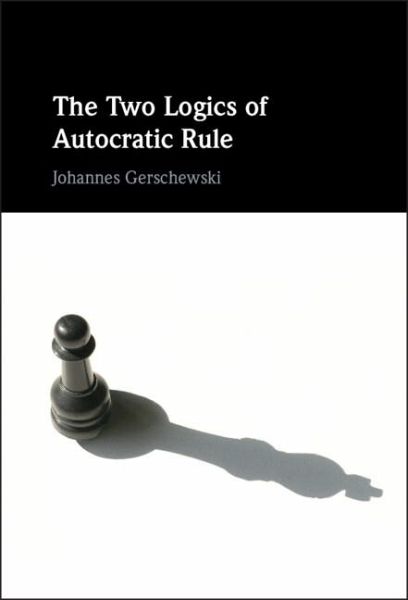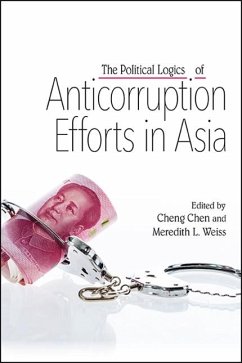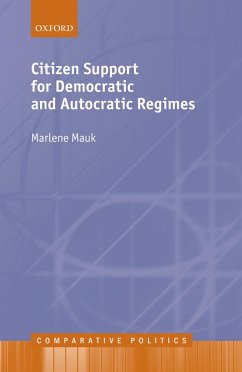
Two Logics of Autocratic Rule (eBook, ePUB)
Versandkostenfrei!
Sofort per Download lieferbar
84,95 €
inkl. MwSt.
Weitere Ausgaben:

PAYBACK Punkte
42 °P sammeln!
In The Two Logics of Autocratic Rule, Gerschewski argues that all autocracies must fulfil three conditions to survive: the co-optation of key elites into their inner sanctum, the repression of potential dissent, and popular legitimation. Yet, how these conditions complement each other depends on alternative logics: over-politicization and de-politicization. While the former aims at mobilizing people via inflating a friend-foe distinction, the latter renders the people passive and apathetic, relying instead on performance-driven forms of legitimation. Gerschewski supports this two-logics theory...
In The Two Logics of Autocratic Rule, Gerschewski argues that all autocracies must fulfil three conditions to survive: the co-optation of key elites into their inner sanctum, the repression of potential dissent, and popular legitimation. Yet, how these conditions complement each other depends on alternative logics: over-politicization and de-politicization. While the former aims at mobilizing people via inflating a friend-foe distinction, the latter renders the people passive and apathetic, relying instead on performance-driven forms of legitimation. Gerschewski supports this two-logics theory with the empirical analysis of forty-five autocratic regime episodes in East Asia since the end of World War II. In simultaneously synthesizing and extending existing research on non-democracies, this book proposes an innovative way to understand autocratic rule that goes beyond the classic distinction between totalitarian and authoritarian regimes. It will be of interest to scholars and students of comparative politics, political theory, and East Asian politics.
Dieser Download kann aus rechtlichen Gründen nur mit Rechnungsadresse in A, B, BG, CY, CZ, D, DK, EW, E, FIN, F, GR, HR, H, IRL, I, LT, L, LR, M, NL, PL, P, R, S, SLO, SK ausgeliefert werden.













